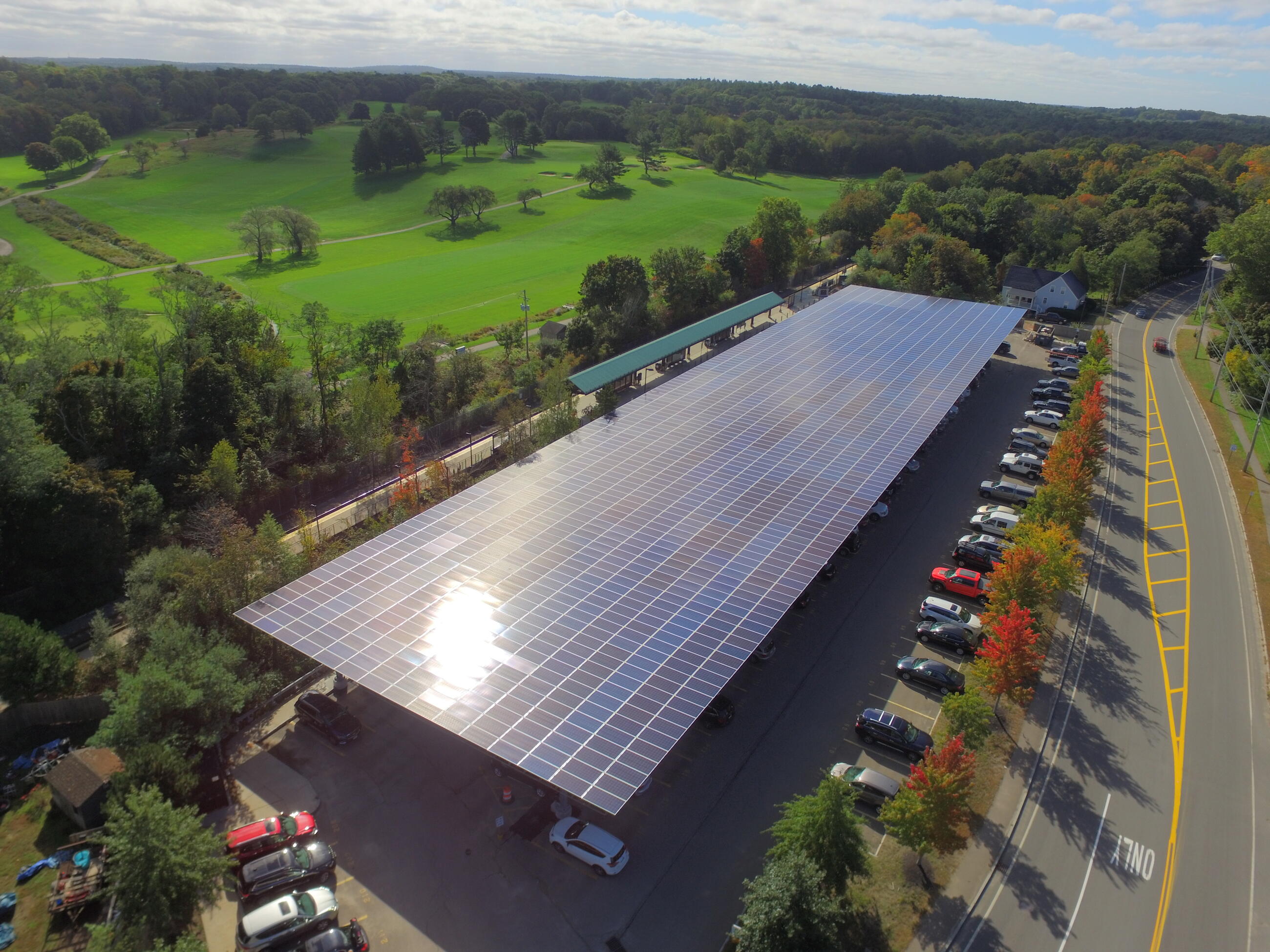Sustainability and Resilience at the MBTA

The MBTA plays an important role in reducing emissions in Massachusetts. We operate a low-carbon transit system, offering an alternative to driving and supporting good land use in Greater Boston. Our goal is to increase sustainability and enhance the resilience of the transit system, further strengthening the climate benefits of our public transportation services.
The MBTA uses many forms of energy, including electricity, steam, diesel, natural gas, and other carbon-based fuels. We seek to reduce our carbon footprint and our impact on the environment whenever possible. As of January 2021, 100% of the MBTA’s electricity needs are supplied by certified renewable electricity. We also have on-site energy generation via wind turbines and solar arrays.
Climate Assessment
In 2024, we released the MBTA Climate Assessment. The Assessment:
- Lays out the framework for decarbonization and resilience initiatives at the Authority
- Takes stock of our climate mandate and achievements to date
- Articulates a vision for climate resilience and sustainability
- Identifies key next steps to develop and implement decarbonization, resilience, and power plans
- Provides steps to ensure our workforce is ready to deliver and operate a transit system adapted to a future climate
These planning efforts build on the Healey-Driscoll Administration’s climate priorities laid out in the 180-day Climate Chief report, the Clean Energy and Climate Plan for 2025 and 2030, Beyond Mobility, and the MBTA’s own Strategic Plan.
We also engage in environmental stewardship beyond our efforts to reduce greenhouse gas (GHG) emissions and adapt to a changing climate. Our Environmental Management & Sustainability Policy lays out the guiding principles to reduce GHG emissions and other air quality impacts. We diligently maintain and exceed environmental compliance at our facilities. We carefully manage our activities to ensure that we don’t adversely affect the environment, the communities where we operate, or our employees.
We aim for environmental sustainability when building projects and operating our system. Our efforts include waste and water management, natural resource conservation, historic preservation, and more ways to protect the environment and the communities we serve.
Sustainability and Resilience Programs
To learn more about our efforts toward environmental sustainability and resilience, take a look at our programs.
Building a Better T
As part of our $9.6 billion, 5-year capital investment plan, we're renovating stations, modernizing fare collection systems, upgrading services for our buses, subways, and ferries, and improving the accessibility of the entire system.
Climate Assessment
To learn more about our vision for a sustainable and resilient MBTA, read the 2024 Climate Assessment.
Download the 2024 Climate Assessment (PDF, 4.59 MB)
Share Your Ideas
If you have ideas or suggestions for making the MBTA more environmentally sustainable, please email environmental@mbta.com or call 617-222-4376.
Building a Better T
As part of our $9.6 billion, 5-year capital investment plan, we're renovating stations, modernizing fare collection systems, upgrading services for our buses, subways, and ferries, and improving the accessibility of the entire system.
Climate Assessment
To learn more about our vision for a sustainable and resilient MBTA, read the 2024 Climate Assessment.
Download the 2024 Climate Assessment (PDF, 4.59 MB)
Share Your Ideas
If you have ideas or suggestions for making the MBTA more environmentally sustainable, please email environmental@mbta.com or call 617-222-4376.